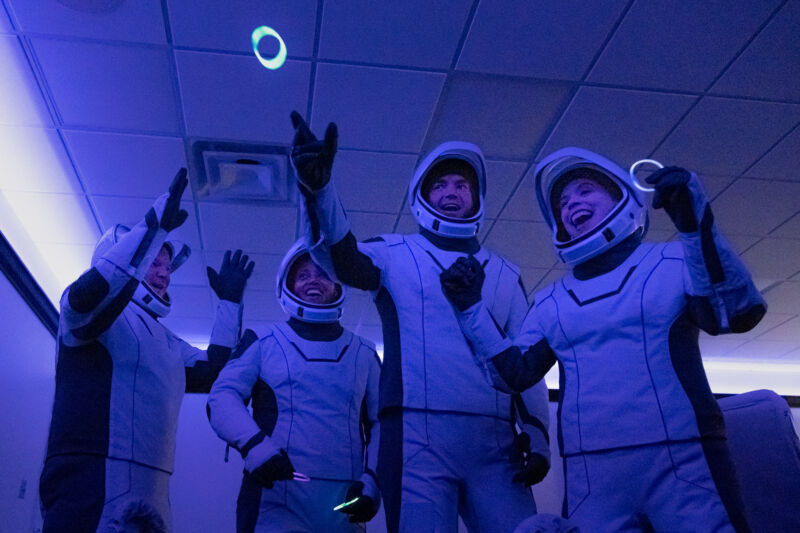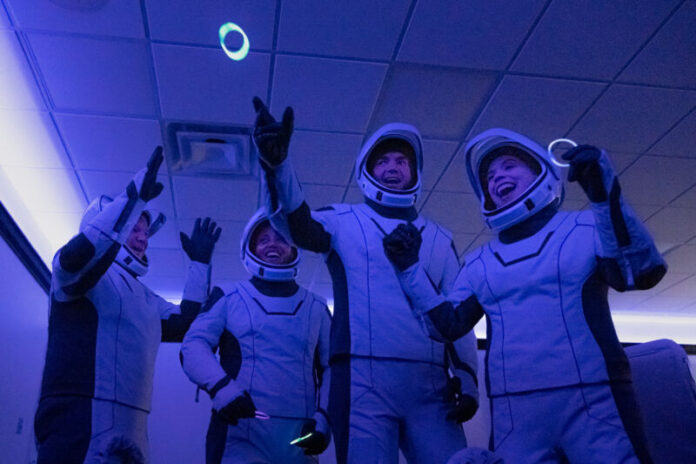
Enlarge / The four private astronauts who flew into orbit with SpaceX on the Inspiration4 mission in 2021, the first fully commercial human spaceflight mission to low-Earth orbit. (credit: Inspiration4/John Kraus)
There are three US companies now capable of flying people into space—SpaceX, Blue Origin, and Virgin Galactic—and representatives from those three companies told lawmakers on Wednesday that the industry is not yet mature enough for a new set of federal safety regulations for their customers.
A nearly 20-year moratorium on federal regulations regarding the safety of passengers on commercial human spaceflight missions is set to expire on January 1. It was scheduled to lapse at the beginning of October, but Congress added a three-month extension to a stopgap spending bill signed into law to prevent a government shutdown.
That allows a bit more time for lawmakers to write a more comprehensive commercial space bill addressing several issues important to the commercial space industry. These include industry-wide concerns about the Federal Aviation Administration's ability to quickly license commercial launch and reentry operations, a hurdle SpaceX is eager to overcome as it waits for FAA approval to launch the second full-scale test flight of its giant Starship rocket.
Read 19 remaining paragraphs | Comments
Ars Technica - All contentContinue reading/original-link]




